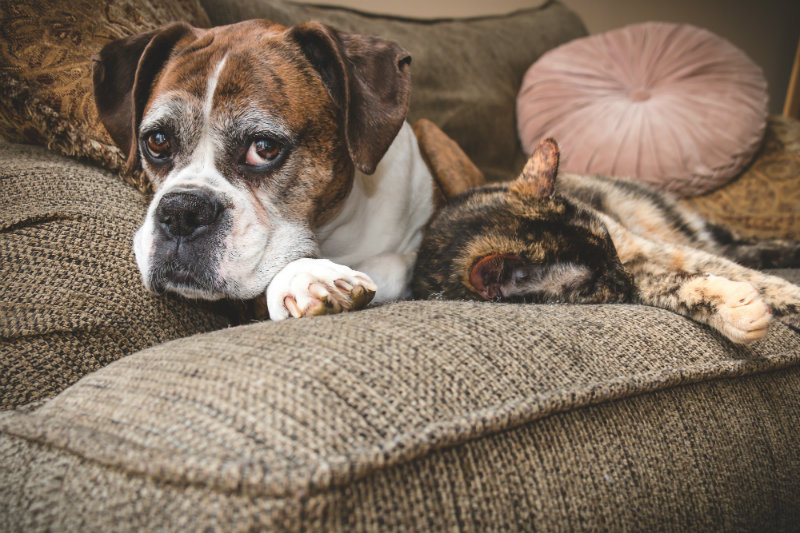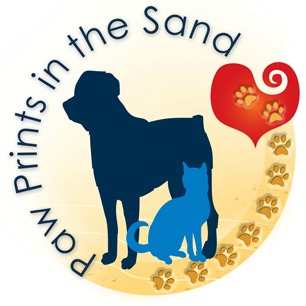
Caring for a Senior Pet
November is National Adopt a Senior Pet Month!
Here at PPITS, we love our senior pets. We even created a program called Murray’s Purpose for at-risk senior shelter pets.
If you’ve been thinking about adding a senior pet to your home, or if your current pet is starting to show signs of age, then it’s important to know how to care for these very special animals.
When you first adopted your pet, chances are they were young and full of vigor. But even puppies and kittens grow old. Or, maybe you decided to adopt a senior pet because well, they’re amazing!
Thanks to advancements in veterinary medicine and more owner awareness, pets are living longer now than they ever have before – but as pets get older, they need extra care and attention. It’s important to know what happens in the pet aging process. It’s really no different from humans as we grow old. Here are some things to expect as your pet gets older (Note: you may not experience all of these, or any of these, but these are things we commonly see when it comes to seniors):
- Decrease in energy
- Development of cataracts
- Hearing loss
- Arthritis and loss of bone density
- Bowel and/or bladder issues
- Increased risk of risk of kidney or liver disease, diabetes, or becoming obese
While these all sound serious, and they can be, there are ways to mitigate these common senior pet health issues so you can keep your senior pet happy, healthy, comfortable, and free of stress during their golden years.
Feed them an age-appropriate diet
Senior pets have different dietary requirements than younger pets, so it’s important to feed them a diet that is appropriate for their age and dietary needs. Because senior pets tend to be more sedentary than puppies or kittens, they are more likely to gain weight. They don’t have the energy they used to. A low-fat diet with fewer calories is recommended to keep your pet at a healthy weight.
Talk to your veterinarian about foods that provide the balance of nutrition they will need. If your senior pet has digestive allergies or skin problems, they will need a diet that includes the right protiens. Your pup may be allergic to a variety of foods including wheat, dairy, chicken, and eggs, so find them a food that won’t trigger an immune response.
Regular exercise
Even though your senior pet has slowed down and doesn’t have the energy they used to, it is still very important that they maintain a regular exercise routine. This will help your pet maintain a healthy weight and it’s beneficial to their overall health. Talk to your vet about the right exercises for your senior pet. However, it’s best to keep exercises low-key with walks or light jogs. This is especially important if you adopted a senior pet as they likely didn’t receive the care they needed throughout their lives, so they will need to start slow and work their way up.
We also recommend mental exercises to keep your pet’s mind healthy and active. There are some great games for your senior dog or cat that will not only help keep them mentally stimulated; these are great exercises if your senior pet doesn’t get around well any more.
Pay attention to their teeth.
Dogs and cats alike require dental care. The Drake Center for Veterinary Care in California notes that cats over the age of four can develop gingivitis and periodontal disease. The older they get, the more alarming these issues can be. Dogs are likewise at risk of oral health concerns. Bad breath, visible plaque, and reduced appetite are all signs that your aging pup is dealing with tooth problems. You can offset many of these issues by brushing your dog’s teeth. Dental chews and water additives may also help if your dog doesn’t like their teeth being touched or are visibly uncomfortable when doing so.
Regular vet visits
Older animals tend to have more healthcare requirements with each passing year. Your vet may recommend a senior blood panel to check heart, liver, and kidney function. Because pets tend to develop health issues like the ones previously mentioned, it is likely you will be seeing your vet more frequently, which can get very expensive. Sadly, because of this, so many senior pets end up in our shelters because their owners cannot afford their care. Therefore, it is very important to be financially prepared for your senior pet’s medical needs.
You may be able to get pet insurance to offset medical expenses. Before you buy, look into various plans to find out if they cover the services you need and accept older pets. Most do not cover any pre-existing conditions, but do your research. We recommend pet insurance by the ASPCA, but there are other quality pet insurance providers.
Make your home senior pet friendly
While you probably don’t need to add wheelchair access to your home to accommodate an aging animal, there are a few things you can do to make it easier for them to get around. Older pets tend to develop bone and joint problems as they age, which could affect their mobility. This is why we recommend making certain accommodation for your senior pet.
If your dog sleeps on the bed or lay on the couch, a pet ramp can help them get to their sleeping spot without trying to jump. Likewise, if you notice that they slip and slide on tile or hardwood floors, consider adding non-skid runners throughout their preferred path.
Regular grooming
As your pet ages, it’s likely that their coat will start to lose its luster. Seniors often suffer with dry, flaky skin. If you have a long-haired pet, we recommend you brush your pet regularly to avoid mats and tangles. Also, use natural oatmeal-based shampoos to help nourish dry, irritated skin.
As you can see, taking care of an older animal is not that different from taking care of yourself when your own hair starts to gray. It requires both mental and physical exercise, proper nutrition, a relationship with their health care professional, and a few simple home modifications. These tips can help you help your beloved pet thrive and enjoy their sunset years.
Note sure when or if your pet is considered a senior? Check out this chart by the American Veterinary Medical Association for more information.

Recent Comments